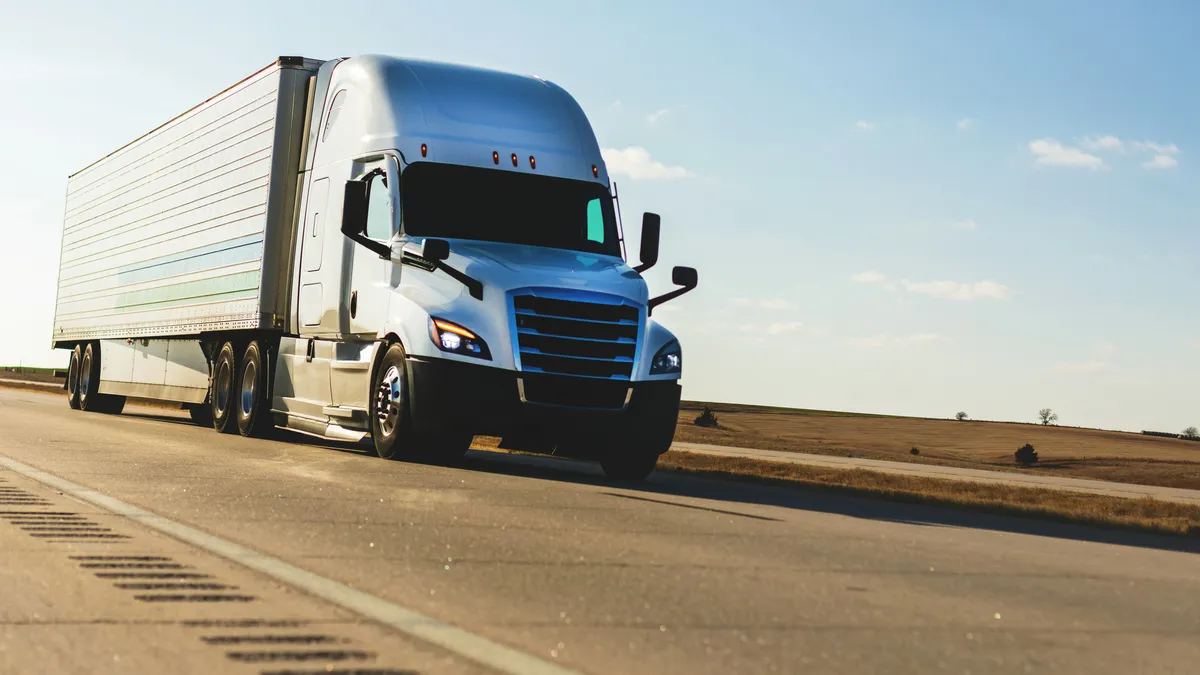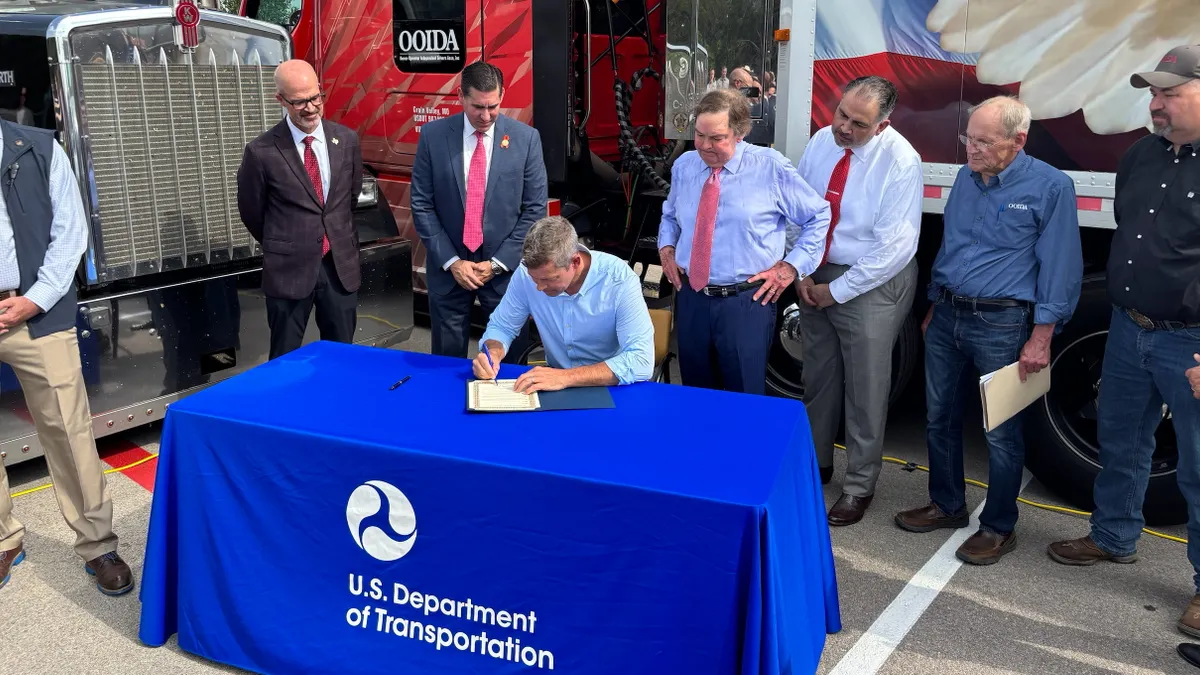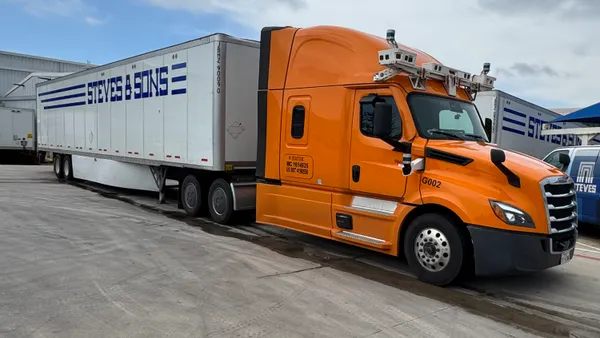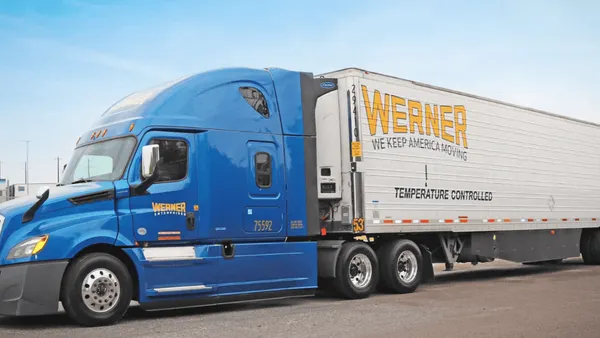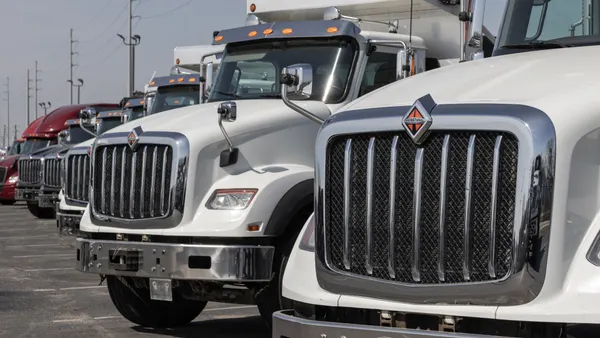Dive Brief:
- Schneider acquired Ohio-based TL carrier Midwest Logistics Systems in a $263 million cash deal, Schneider announced Tuesday. The deal closed Dec. 31, 2021.
- MLS is now a standalone subsidiary of Schneider, retaining its brand. The fleet has 1,000 drivers, 900 tractors and 3,600 trailing units, with 30 locations in the U.S.
- The acquisition boosts Schneider's dedicated service; MLS has annual revenues of approximately $205 million. "With this acquisition, we believe Schneider is on track to generate $1 Billion in annual revenue in our dedicated operations with over 5,000 trucks," Schneider CEO Mark Rourke said in the announcement.
Dive Insight:
The market is ripe for trucking firms to expand dedicated operations. Shippers are searching for more reliable capacity and steady rates, and carriers with the means to do so can seize on the trend.
Schneider CFO Steve Bruffett alluded to the possibility of a dedicated deal during the company's Q3 earnings call. An analyst noted Schneider had ended the quarter with more than $500 million in cash — a solid indicator of upcoming M&A.
"I think we are continuing to be interested in the inorganic opportunities that we might see in a dedicated or specialty configuration and continue to evaluate opportunities there," Bruffett said on the October 2021 call.
Schneider isn't the only one boosting dedicated operations to cater to shippers. USA Truck CEO James Reed said during an earnings call the same month that the company aims to have 50% of its revenue and profits in dedicated by the end of 2024.
"This is the best environment to make that investment and that shift in. Customers are more aware now than ever of the gaps in their trucking capacity, specifically, and supply chains, generally," Reed said. "As a result, [they] are more willing to move long-term commitments into dedicated configurations."
Allocating significant resources to dedicated lanes can be a risk for fleets. They have less ability to react to hot spot markets, if their equipment is already tied up.
But pandemic-driven market volatility has weighted the cost-benefit analysis in favor of dedicated for many. One reason: Dedicated lanes are a draw for many drivers.
Tim Norlin, vice president of driver employment for Roehl Transport, said last year that drivers were requesting dedicated lanes.
Schneider has had more success in sourcing, seating and retaining drivers in its dedicated and intermodal segments, Rourke said on the firm's Q3 call.
"Clearly, intermodal and dedicated are the most attractive options for drivers," Rourke said. "Fortunately, we have that [as a] key part of our strategy."
Schneider said MLS uses a high-velocity relay system, which allows drivers to be home daily. And, according to Schneider, its newest subsidiary has "unrivaled driver retention."
Relays have been a somewhat elusive concept in OTR operations over the years. But drivers' prioritization of home time has increased during the pandemic, prompting some fleets to consider using the method.
In June, Forward Air began a network optimization exercise to identify opportunities for swaps to perhaps pursue solo relay configurations, Chief People Officer Kyle Mitchin told Transport Dive last year.
"As you look at the driver population, [home time is] becoming more and more of a priority for the drivers — even maybe, in some certain situations, more so than the pay itself, right?" Mitchin said. "'I'm willing to make less to be home more.' And you're starting to see that."
This story was updated with insight.




